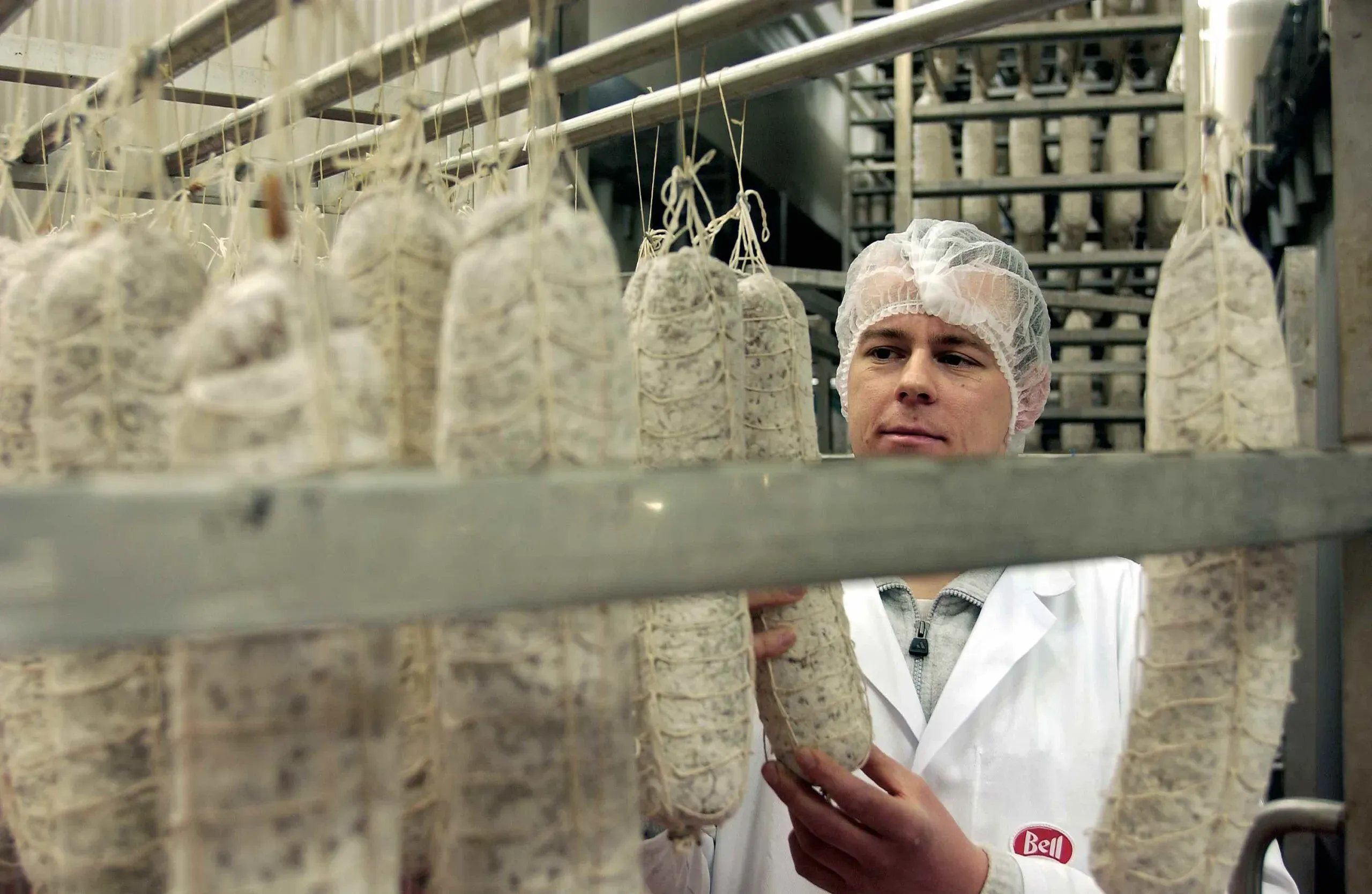Case study
Reliable SAP systems at Bell

| Industry | Food and Beverage |
| Location | Switzerland |
| Employees | 12’200 |
| Service | Application Lifecycle Management |
| Customer since | 2016 |

Delays and budget-overruns in IT projects are not a seldom occurrence. The effects on ERP systems have far further reaching consequences though, as they are directly tied to daily operations.
Bell Food Group produces fresh food products. Delays in production and logistics cause substantial damages.
For the Bell Food Group, it is important to work with a reliable partner, who supports and guides their customer from planning to implementation of new systems and understands the seriousness of custom requirements.
“blueworks always has a solution at hand and they don’t mind doing unplanned or ad-hoc changes when they are on site. One really feels their ambition, speed and commitment to our success.”
blueworks, a competent SAP partner at Bell Food Group
“I’d call us a very ambitious customer. In terms of speed we have high expectations toward our service providers,” admits Markus Kollatz, Head of Application Development at Bell Food Group. The Application Development unit is also responsible for SAP Basis and employs a 3 person SAP Basis team in-house.
When the company began its first S/4HANA implementation in 2016, Kollatz was in need of a reliable partner. blueworks was recommended to him by a colleague. “There was a lot of work to be done, as many systems needed to be provisioned in a tight time-frame.”
Reliability is paramount. Bell Food Group produces fresh meat and fish products. As such, a quick glance on the company’s risk assessment highlights the importance of a reliable system landscape. There is a lot at stake if production or the supply chain are interrupted. Kollatz explains this with a simple example: “You go to a butcher or supermarket to purchase meat for a dinner. If you get the products your looking for, you’re satisfied. If not, you either opt for an alternative product or, in the worst-case purchase from a different store.” Not only the Bell brand will suffer, but also their customer whose clients don’t find what they are looking for.
Accordingly, the planning and implementation of software projects need to adhere to the strict requirements of the food processing industry. The difference to other industries is huge. “When you buy a car, you would hardly back off a purchase agreement if delivery is delayed by a day. With food products it’s a different story. Customers quickly move on to competitors,” explains Kollatz.
SAP as a corner stone for operations
SAP ERP systems are a corner stone in the production and logistics processes. Possible problems will have immediate consequences. Anything, that goes wrong, will have an immediate impact on business. “Without running SAP systems, we can’t ship products” says Kollatz. “Customer orders accepted until 1pm, are prepared and shipped by the same night. If there is an issue with the process, ultimately our customers shelves will be empty the next morning.” Incidents can have severe consequences: Revenue fallouts and disturbed customer relations to name a few. Reliably maintained and flexible SAP systems are of the up-most importance at Bell Food Group.
Logistics processes are particularly sensitive. Employees record incoming and outgoing goods directly in SAP systems with special touch-screen devices. As Kollatz puts it: “If SAP systems are offline, we can’t process the flow of goods, print customer and shipping labels or uphold our in-house supply chain.”
Markus Kollatz says it is difficult to source a reliable consultant, who is competent and reacts quickly to planning and implementation needs. blueworks have proven themselves as a competent and reliable partner who cope perfectly with last-minute shifts in priorities. “blueworks always has a solution at hand and they don’t mind doing unplanned or ad-hoc changes when they are on site. One really can notice their ambition, speed and commitment to our success,” praises Kollatz.